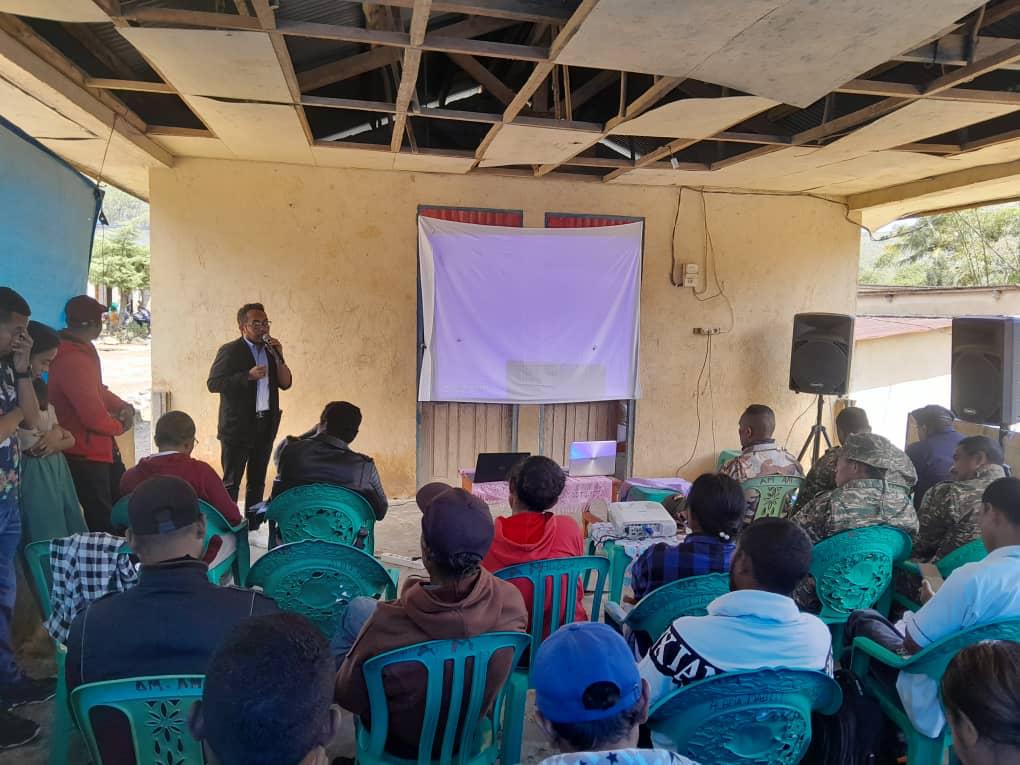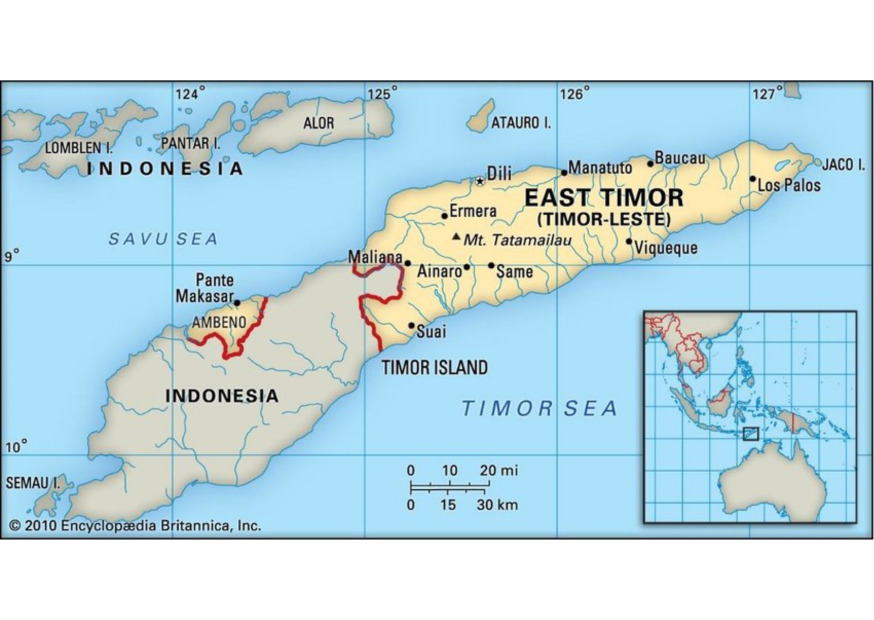
Timor-Leste shares a land border with Indonesia on the island of Timor. A recent outbreak in the Indonesian part poses a spreading risk. To prevent the disease from entering Timor-Leste, border surveillance has been strengthened.
Timor-Leste has a historical record of being rabies-free in its dog population. However, a recent outbreak in the Indonesian part of Timor Island has raised concerns among the Veterinary Services of Timor-Leste. In May 2023, the disease was detected in South Central Timor Regency and reported by the government of East Nusa Tenggara province. Indonesian Veterinary Services also notified the World Organisation for Animal Health (WOAH) through WAHIS.
Map of Timor Island
This marks the first occurrence of rabies on Timor Island, as the disease had previously been limited to Flores Island in this part of Indonesia.
The disease has led to three fatalities among residents, including an eight-year-old girl. Their deaths were attributed to rabid dog bites. The outbreak has heightened concerns among Timor-Leste authorities due to the country’s 253 km land border with Indonesia, including the exclave of Oecusse.
The Timor-Leste government is coordinating with the Indonesian government to prevent rabies from entering the country at both ministerial and operational levels. Veterinary Services are particularly vigilant in border areas, as a significant number of Timorese residents cross the border. Recent economic studies indicate that profits from illegal trade exceed legal transactions, and the transportation of animals is among the illegal activities, posing an epidemiological risk.
Village dwellers near the border informed on rabies
Timor-Leste authorities had anticipated the possibility of rabies reaching their country and established a prevention strategy. A national contingency plan has been in place since 2017, in cooperation with the government of Australia, which closely monitors developments on Timor Island. Border control is a critical component, with Veterinary Services working closely with the Timor-Leste Defence Force and Border Patrol Unit (UPF) to enhance surveillance and raise awareness.
Key messages about the risks of bringing animals across the border illegally are disseminated. Many Timor-Leste residents are unaware that the incubation period in dogs takes several weeks, so dogs with no symptoms can be infected. Veterinary Services have intensified surveillance at the borders.
Joint public awareness activities target the border area and involve all relevant stakeholders and institutions responsible for border control. Veterinary Services continue their efforts to disseminate information to communities in the three municipalities located along the border, using rabies awareness materials tailored to the local context.
Simultaneously, Veterinary Services operate in every municipality to conduct disease investigations, public awareness campaigns, treatments, and vaccinations. During these joint public awareness efforts, border police, regular police, customs officials, military personnel, healthcare providers, community leaders, and farmers are invited to participate.
Along with border surveillance, Timor-Leste authorities are procuring 50,000 doses of vaccines through WOAH vaccine bank with the support of the Australian government. Vaccination campaigns are deemed essential to maintain the rabies-free status.





